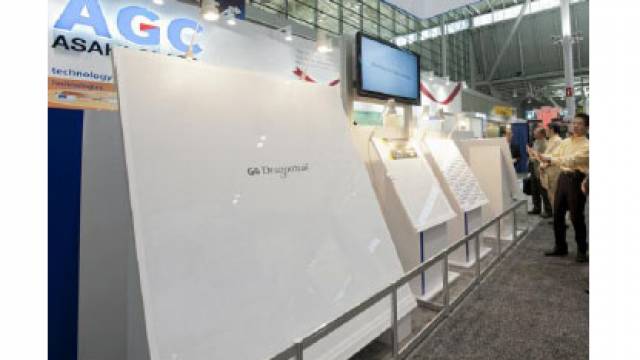AGC is setting up a chemical strengthening facility for its Dragontrail™ speciality glass at its Kansai Plant in Hyogo Prefecture, Japan. The facility will be able to handle up to sixth-generation (1850mm x 1500mm) glass, enabling the efficient production of thinner next-generation touchscreens.
AGC has announced that it will be setting up a chemical strengthening facility for Dragontrail™, speciality glass used as cover glass for smartphones and tablet PCs, at its Kansai Plant in Hyogo Prefecture, Japan. This new chemical strengthening facility can handle up to sixth-generation (1850mm x 1500mm) glass, enabling the efficient production of thinner next-generation touchscreens. Operations are scheduled to begin in March 2013.
Conventionally, touchscreens of smartphones and tablet PCs have been triple-layered, consisting of a cover glass, a touch sensor and a display. Demand for double-layered touchscreens, which can make the touchscreen even thinner, is, however, expected to grow, and technology to insert the touch sensor into the cover glass is drawing attention as a means manufacturing double-layered touchscreens.
A key to the efficient production of double-layered touchscreens is large-size chemically strengthened glass. Many types of cover glass with built-in touch sensors can be manufactured by arranging touch sensors on a large sheet of chemically strengthened glass and cutting the glass into pieces of the intended size. As the touchscreens manufactured based on this method are to be increasingly used in smartphones and tablet PCs in 2013 onward, AGC’s high-quality G6-size chemically strengthened Dragontrail manufactured at the new facility will contribute to the creation of even thinner smart phones, tablet PCs, Ultrabook and other touchscreen devices.
Dragontrail, a damage and scratch-resistant speciality glass, has been adopted by over 20 companies for use as cover glass and used in some 60 smartphones and tablet PC models.






